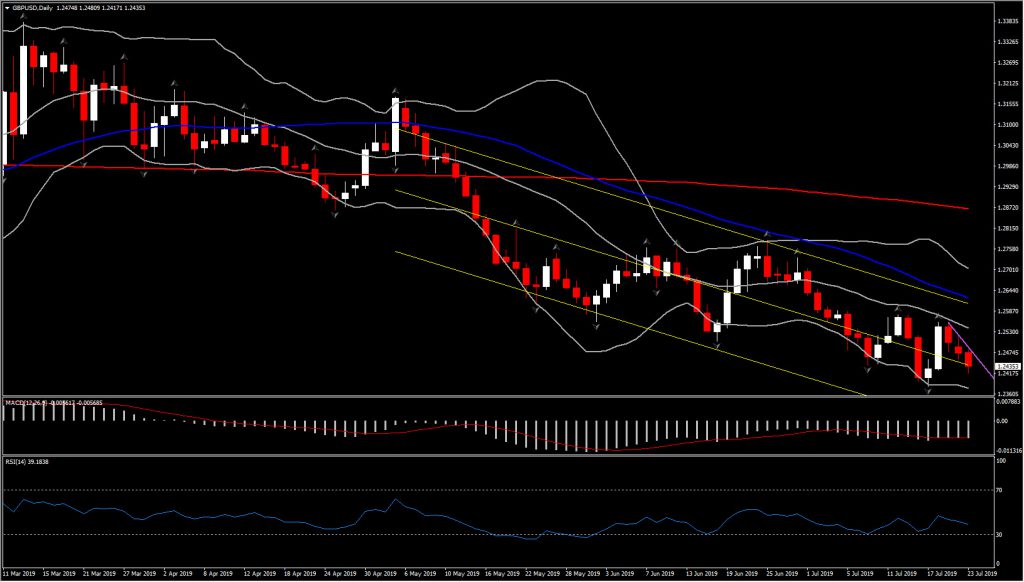Brexit will leap back to centre stage now that the new UK Prime Minister, Boris Johnson, has been selected.
Already Moody’s and Goldman Sachs’ analysts, among others, have warned of an increased likelihood for the UK leaving the world’s biggest free trade area without an agreement on divorcing terms or an outline of new trading terms.
Markets have been preparing for this since early May, with Sterling having in the interim declined by about 6% in trade-weighted terms, with the currency back to about 15% below where it was just before the vote to leave the EU in June 2016. Boris campaigned strongly on a Brexit “at all costs” ticket, clearly advocating leaving without a deal on October 31 should Brussels not give any ground on the Northern Ireland backstop issue. And Brussels’ red lines look iron cast with the European Commission’s first vice president, Frans Timmermans, announcing that there would be no renegotiation in a press conference timed to coincide with Johnson’s appointment as new Tory party leader.
The EU commissioner Vytenis Andriukaitis also warned in a blog post of “cheap promises, simplified visions, blatantly evident incorrect statements,” although promising that “we will hear what the new prime minister has to say when he comes to Brussels.” Johnson finds himself as leader of a weak minority government in a parliament that is sharply divided on Brexit.
Given the above, along with recent polling and the recent parliamentary amendment aimed at blocking the new PM from proroguing parliament (to force through a no-deal Brexit), there is a chance he will risk calling a general election.
POUND
The crowning of Boris Johnson as the new leader of the UK Conservative Party, with Johnson ready to be confirmed as Prime Minister today, is keeping Sterling under pressure, especially with BoE MPC member Saunders describing UK growth as “weak and below trend” in an interview with Bloomberg. Meanwhile, investors are raising their no-deal Brexit bets, which is also fuelling easing expectations.
The Pound has remained under pressure, with Cable holding below 1.2500.
A report by UK think-tank NIESR, meanwhile, that Brexit-related uncertainty may have already tipped the UK economy into recession has also been in the mix of sentiment fodder over the last day.
Despite the correction from 1.2417 lows, the Pound remains in July below 20-day SMA, and below 50- and 200-day SMA since May. Hence, short term or medium term rallies considered as temporary before the reinforcement of another leg lower.
Momentum indicators are extending lower, something that increases the potential of a retest of the recent low at 1.2380. Initial Resistance at $1.2480 and for the day at yesterday’s high at 1.2520.
Click here to access the Economic Calendar
Andria Pichidi
Market Analyst
Disclaimer: This material is provided as a general marketing communication for information purposes only and does not constitute an independent investment research. Nothing in this communication contains, or should be considered as containing, an investment advice or an investment recommendation or a solicitation for the purpose of buying or selling of any financial instrument. All information provided is gathered from reputable sources and any information containing an indication of past performance is not a guarantee or reliable indicator of future performance. Users acknowledge that any investment in Leveraged Products is characterized by a certain degree of uncertainty and that any investment of this nature involves a high level of risk for which the users are solely responsible and liable. We assume no liability for any loss arising from any investment made based on the information provided in this communication. This communication must not be reproduced or further distributed without our prior written permission.




















